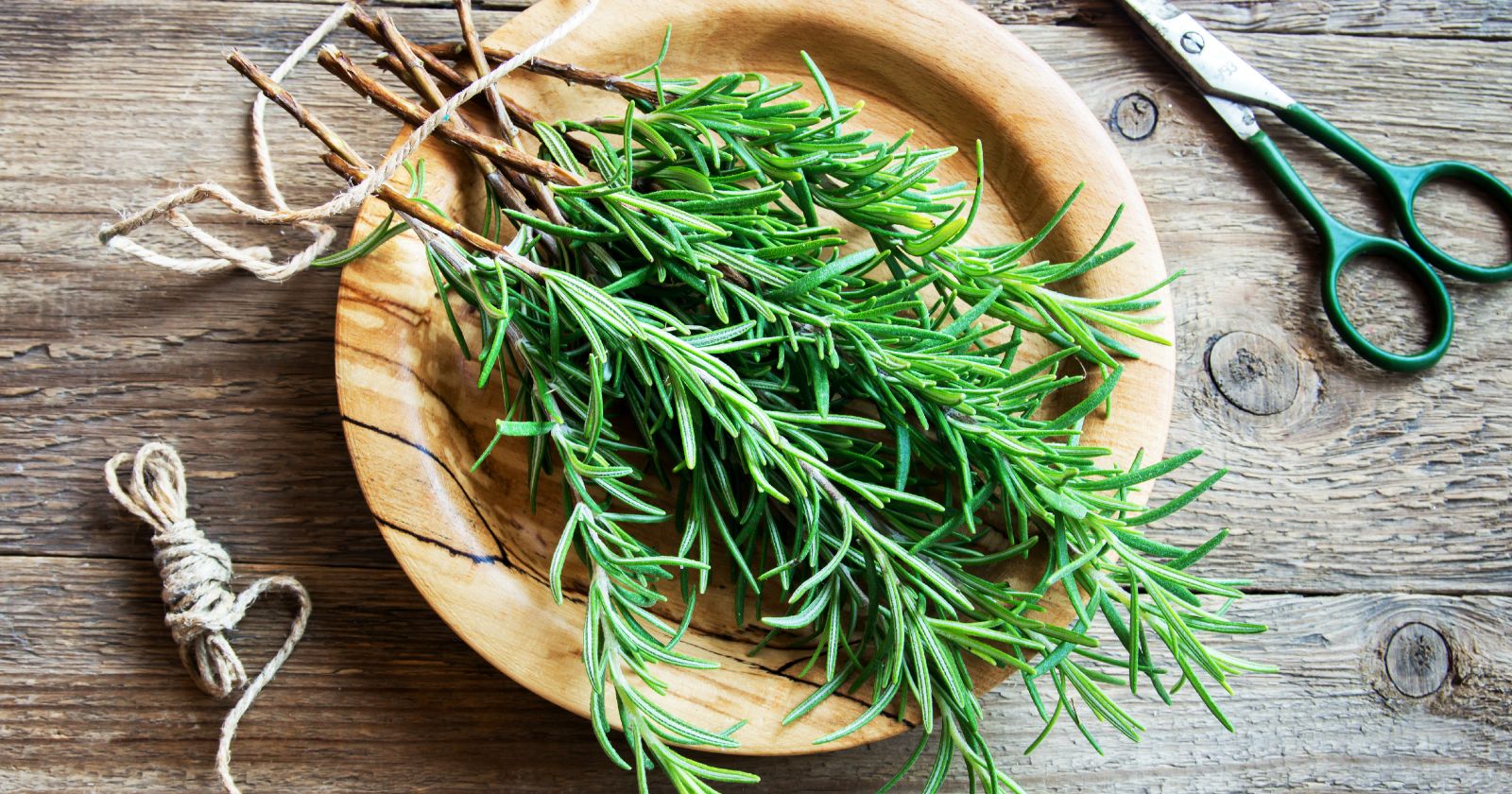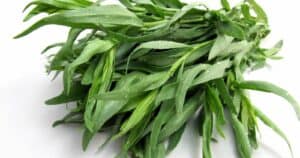Are you looking to improve your memory and digestion while adding a delicious flavor to your meals? Look no further than rosemary, the fragrant evergreen shrub native to the Mediterranean region.
In addition to being a popular culinary herb, rosemary has potential health benefits that make it a true superfood.
From its sweet and resinous flavor to its potential to improve memory function, rosemary is a versatile herb that can enhance your health and your cooking.
In this blog post, we will delve into rosemary’s many uses and benefits, including how to grow and care for this perennial plant. Let’s get started and unlock the benefits of rosemary.
The History and Origin of Rosemary
Rosemary is a Mediterranean herb commonly used in cooking and has quite a fascinating history.
The herb has been around since ancient times, with the first mention of it found on cuneiform stone tablets dating back to 5000 BCE.
Here are some fascinating facts about the history and origin of rosemary:
- In ancient times, rosemary was believed to have many medicinal properties. It treats ailments such as indigestion, headaches, and snake bites.
- Rosemary was also used in religious ceremonies in ancient Greece and Rome. It was believed to have to purify properties that could ward off evil spirits.
- During the Middle Ages, rosemary was used as a natural insecticide. It would be burned in households to keep insects away.
- In the 16th century, Queen Elizabeth of England popularized using rosemary to treat headaches and other ailments. She also used the herb as a perfume.
- The Spanish were among the first to cultivate rosemary in the 13th century. The French later popularized it, becoming a staple in their cuisine.
The Medicinal Benefits of Rosemary
Rosemary is more than just an herb we use in cooking – it has several medicinal benefits. It can alleviate muscle pain, improve memory and even promote hair growth.
This is because it contains antioxidants and anti-inflammatory compounds that help boost immunity and blood circulation.
Carnosic and rosmarinic acids in rosemary have powerful antibacterial, antiviral, and antifungal properties.
Drinking rosemary tea can also help lower blood sugar levels, improve mood and enhance memory.
Rosemary’s anti-inflammatory and antioxidant compounds have been shown to benefit our health in various ways. Here are some detailed benefits of consuming it regularly:
- Boosts Immune System: Rosemary increases the production of white blood cells, which fight off infection and disease. This herb also has antimicrobial properties that help keep the body healthy.
- Improves Digestion: Drinking rosemary tea may improve digestion and prevent stomach issues such as bloating or flatulence. It can also reduce inflammation in the gut and relieve constipation.
- Supports Brain Health: Studies show that rosemary can help protect the brain from damage caused by free radicals, which contribute to conditions such as Alzheimer’s and dementia. Moreover, smelling rosemary has been known to improve cognitive function and mood.
Culinary Uses of Rosemary
Rosemary is a versatile herb in various dishes like soups, casseroles, salads, stews, and bread.
It goes well with chicken, lamb, pork, steaks, fish (especially oily fish), grains, mushrooms, onions, peas, potatoes, and spinach.
The bold evergreen, citrus, and minty flavor work best with intense flavors, making it an ideal seasoning for Mediterranean cuisine.
In traditional Mediterranean cuisine, grilled lamb chops with rosemary are classic. The herb’s woodsy flavor infuses beautifully with the meat’s juices, creating an aromatic experience.
Another traditional use is roasting rosemary potatoes, where the herb releases oils as it bakes, giving the dish its signature flavor.
Rosemary also complements other herbs and spices, like thyme, garlic, and black pepper, with its distinct savory taste.
For a refreshing summer drink, rosemary lemonade is a popular concoction where the herb adds a natural lemon and herb flavor.
Moreover, rosemary-infused olive oil is popular in Mediterranean-style marinades, dressings, and dips. Its potent aroma adds depth of flavor to sauces such as aioli, salsa verde, or pesto.
How to Incorporate Rosemary into Your Daily Routine
You can use rosemary for cooking delicious meals, DIY projects like essential oils and natural deodorant, and even as a household cleaner.
To incorporate rosemary into your daily routine, explore its many uses. Here are some ways to integrate rosemary into your everyday life:
- In the kitchen: use rosemary to add flavor to your meals. Not only does it taste great, but rosemary also provides many health benefits. Make rosemary butter and fresh lemonade, or add it to soups, casseroles, salads, stews, and bread.
- In DIY projects: rosemary is a popular ingredient in essential oils, natural deodorants, mouthwash, and potpourri. Try making rosemary-scented products to incorporate this versatile herb into your daily routine.
- As a household cleaner: rosemary is a natural antiseptic, perfect for cleaning your home. You can add rosemary to your homemade laundry detergent for a fresh, natural scent. Make an all-purpose cleaner by infusing rosemary into vinegar or water.
Rosemary Substitute
Rosemary Substitute: Thyme, Oregano, Basil, and More
If you need a rosemary substitute, don’t worry! There are plenty of herbs with similar flavors. Thyme, oregano, basil, savory, tarragon, and marjoram can replace rosemary in most recipes.
Also, caraway seeds and Italian seasoning can be used as substitutes for rosemary.
- Thyme is a popular rosemary substitute because of its earthy, slightly minty flavor.
- Oregano has a similar aroma to rosemary and can be used in the same amount as rosemary in most recipes.
- Basil’s sweet, mildly minty flavor pairs well with meats, pasta, and salads. Savory has a slightly peppery taste and is often used in soups and stews.
- Tarragon has a sweet, licorice-like flavor and is often used in French cuisine.
- Marjoram has a sweet, mild flavor that pairs well with meats and vegetables.
If you want to use caraway seeds or Italian seasoning as a rosemary substitute, remember that these blends may contain additional herbs and spices that may change the flavor of your dish.
- Caraway seeds have a slightly bitter, earthy taste and are often used in bread and sauerkraut.
- Italian seasoning typically contains a blend of oregano, basil, thyme, and rosemary, which makes it a great all-purpose seasoning.





